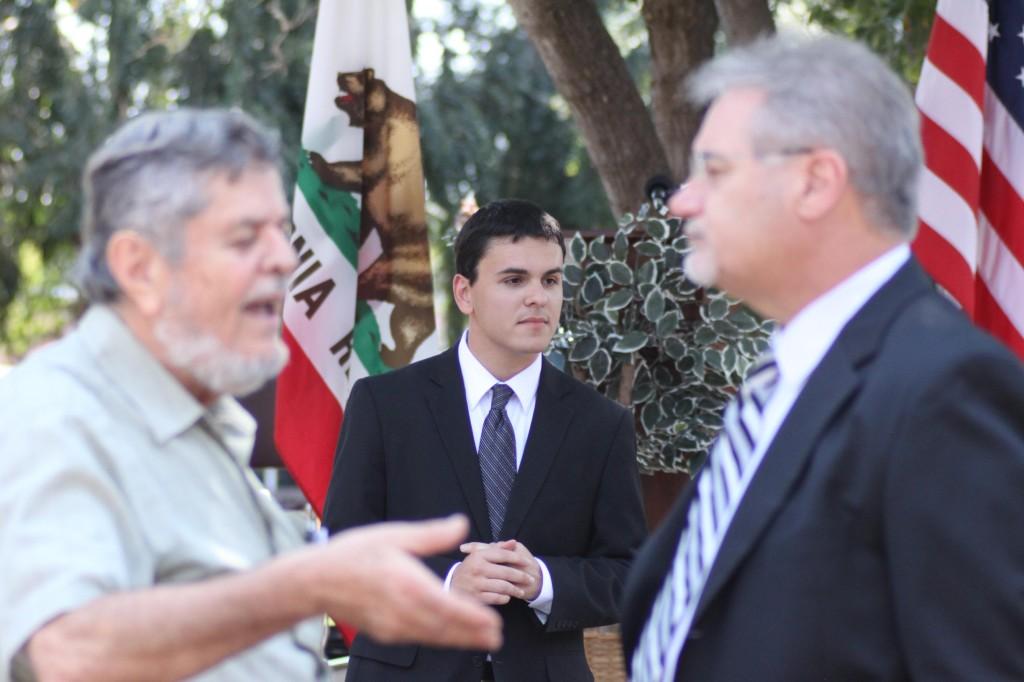With the dawning of the new semester, ASDVC continues to prioritize student concerns in order to develop a more comfortable campus.
Most recently, these concerns involve the creation of a student health center and the strengthening of non-smoking rules across campus.
“Some students may not know where to go to get health coverage and not all people have access to it. It’s important that we help students regarding health issues,” said Amit Randhawa, ASDVC Public Relations Officer.
Many community colleges across America provide health services to students as a part of their tuition, taking a small portion per student each semester so that free coverage can be provided.
Services may include flu shots, sexual health support and mental health evaluation.
“I think it’s great,” said Rein Pulido, a computer science major. “Some people don’t have health coverage or dental coverage, and it’s good to know that ASDVC wants to help for people who need those benefits. I believe it’s a beneficial idea.”
Often, community colleges have nursing stations on campus which provide access to medications such as the morning after pill.
Along with implementing changes on campus for the enhancement of student life, ASDVC has organized and sponsored a 9/11 Memorial, the Mo Festival, the creation of an engineering-inspired spaghetti bridge during eingeneering week..
One upcoming event is the Halloween Bash that will be held Oct. 31 from 11 a.m. to 2 p.m. at the student union building.
ASDVC asks that students attend to participate in fun activities and to enjoy music, food, and prizes.
DVC’s student government has the responsibility of representing the student body, taking notice of student consensus and implementing changes the populace would like to make.
One recent project was the eradication of Styrofoam at the Crow’s Nest and Basement Café in favor of paper containers that are biodegradable, thus reducing the likelihood of damaging toxins entering the body.
ASDVC also impacts student lives in various ways through its cooperation with various campus committees.
However, finding students willing to serve has been a challenge.
“We didn’t have enough students advocating from college committees like district governing, grade appeal committee, and student shared governance. The student government didn’t have students representing [or attempting] to have their voice heard,” said Randhawa.
One of ASDVC’s most important goals is raising campus-wide awareness of opportunities available to students.
Educating students on their resources is a priority because students can be involved in the process of the decisions and implementations that effect their education.
The hope is that students are more likely to succeed at DVC because they’ve played a larger part in developing it.
“My main goals are [making] statements in community student accessibility, transportation for students, health issues and health centers on campus,” said Alex Silva, Vice President of Legislative Affairs.
Recently, there have been disputes regarding the application of a fine for smoking on campus in non-designated areas.
Some ASDVC board members have been discussing potential consequences and many students agree that this is a necessary change.
“I think people who do smoke need to be considerate towards those who don’t,” said Angie Pierce, a business major.
“That’s why there are designated areas. I personally feel there aren’t enough consequences for people who smoke on campus. I smoke anywhere I want but make sure people around me don’t mind, and if they do I get up and go elsewhere.”
Another issue ASDVC is currently focusing on is the recent rash of changes to class repeatability.
“Each course you take can only have 3 enrollments and students can only drop with a ‘W’ the first 2 times. By the third enrollment, you must pass the course,” said Beth Hauscarriague, DVC dean of outreach.
These changes should be effective the summer of 2012.
Previously, students were given seven chances to enroll.
ASDVC welcomes anyone who’d like to be involved to attend meetings, join committees, or contact members.
“We want students to be aware that there is a tremendousw amount of opportunities at community colleges,” said Randhawa. “When I first came to DVC, I didn’t know of anything to do. There was so much misconception that you go to classes then you go home. Once I got involved, I found opportunities to grow not only as a person but as a student.”
Members of the public can also attend meetings every Tuesday from 2 p.m. to 4 p.m. in the student union building.
Managing Editor Cecily Trowbridge contributed to this article.






































































